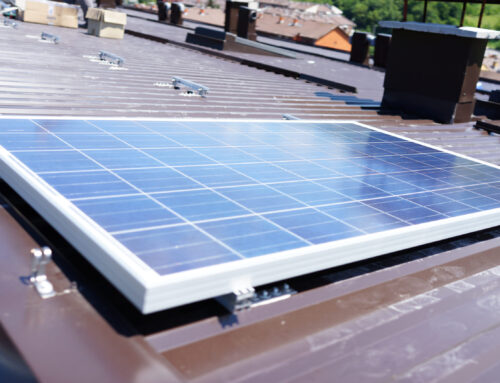According to the Office of Energy Efficiency & Renewable Energy, solar installations in the U.S. have increased from 1.2 gigawatts in 2008 to approximately 30 gigawatts. Those installations could power as many as 5.7 million homes! Many people are drawn to clean energy solutions like residential solar panels because of the amazing environmental benefits. Here are six ways solar power benefits the environment.
1. It Improves Air Quality
Some energy sources, like natural gas, can pollute household air. A significant advantage of solar power is that it produces minimal pollutants. Not only will switching to solar improve air quality in homes, but it can reduce the amount of greenhouse gas, sulfur dioxide, and other harmful emissions in local environments.
2. It’s a Renewable Energy Source
Natural gas, coal, and oil are all non-renewable energy sources. To create energy from these fuels, we need to harvest environmental materials. In contrast, solar power is a natural, renewable form of energy. Every time the sun shines, it provides power for solar panels.
3. It Requires Minimal Infrastructure
Many energy sources require processing plants and other facilities. However, solar panels can be installed directly on homes and other structures. Instead of building new infrastructure, solar panels can be added to existing infrastructure. That means environments aren’t damaged when solar panels are installed.
4. Solar Panels Can Be Recycled
If solar panels are torn down or replaced, they can be recycled! Panels are made from a variety of materials, including silver and silicon. These recycled materials can even be used to make new solar panels.
5. Solar Panels Are Becoming More Energy Efficient
Improving energy efficiency is an excellent way to reduce indirect emissions from electricity. Solar panels have only become more energy efficient over time. According to GreenMatch, solar panels can typically convert 15 to 22% of solar power into clean, usable energy.
6. It Can Reduce Any Household’s Carbon Footprint
Carbon footprints measure how much carbon dioxide a household or organization produces. Lowering carbon footprints is an effective way to fight climate change. Switching to residential solar panels can significantly reduce the carbon footprint of any household. It’s a clean energy source that doesn’t use any water.
There are practical benefits to using solar power, and many environmental advantages too. Solar energy suppliers are helping people become less reliant on fossil fuels. Reach out to Suntegrity Solar if you want to use solar panels to power your home!


 Solar Company
Solar Company 



